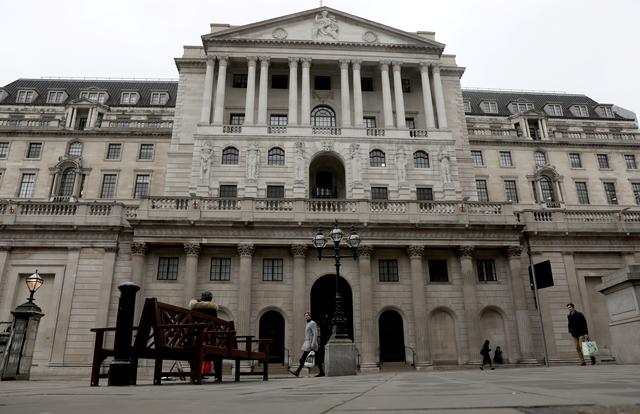
(Reuters) – Bank of England Deputy Governor Dave Ramsden said he thought the floor for the central bank’s key interest rate was 0.1% but the BoE was “duty-bound” to consider going below zero as part of its efforts to help the economy through its coronavirus crisis.
“For me, I see the effective lower bound still at 0.1 which is where Bank Rate is at present,” Ramsden said in an interview with Britain’s Society of Professional Economists posted online.
Sterling extended its rise against the dollar and the euro after his comments.
The BoE said this month it would look at how it might be able to implement negative rates if they were needed, building on an announcement in August that the option was part of its toolbox.
One of the BoE’s nine interest-rate setters, Silvana Tenreyro, said in a newspaper interview published on Saturday that the investigation into whether negative rates might help the economy had found “encouraging” evidence.
Ramsden said in his interview with the SPE that there were some jurisdictions where negative rates appeared more effective than in the euro zone and Japan, but their usefulness depended on the economic cycle and the structure of the banking system.
The BoE cut interest rates to a record-low 0.1% in March, and until this year it had always ruled out negative rates, saying they would hurt Britain’s banks and building society lenders.
But the scale of the COVID-19 hit to the economy, and the possibility of Britain failing to strike a trade deal with the European Union, have forced the BoE to reconsider.
Ramsden said interest rates on households’ bank deposits tended not to fall below zero when central banks pushed their benchmark rates into negative territory – which could hurt banks as the gap between lending and funding rates would narrow.
Britain’s banks were also likely to be hit by higher loan losses soon as borrowers struggle to cope with the coronavirus hit, he added.
That represented a different phase of the economic cycle to when the European Central Bank introduced negative rates, which took place during a recovery phase.
Ramsden said the BoE was not going to use negative rates soon and engagement with banks on the possible change would take time, echoing comments from his colleagues.
“We are not about to use them imminently. It will take time to do this work,” he said.
Ramsden also said he was focused on the risk that unemployment could rise further than the central case in the BoE’s most recent forecasts.
“For me, when we’re looking at unemployment, it is more likely that unemployment will end up peaking higher than 7.5% than lower, and it will end up coming down more gradually,” he said.
Official figures show unemployment of 4.1% for the three months to June.





